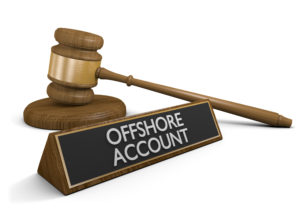 Since 2009, the IRS has permitted taxpayers with undisclosed bank, investment, or retirement accounts outside the U.S., or any other foreign asset (real estate, stock or partnership interest, life insurance, etc.), to voluntarily come forward and disclose their foreign ownership and income in exchange for reduced penalties and no criminal charges through the OVDP program. The basis for the programs was the realization that U.S. taxpayers have placed billions of dollars in other countries, for which income was not reported and U.S. tax not paid. Since 2009, more than 56,000 taxpayers have used the OVDP or a similar disclosure program, paying more than $11.1 billion in back taxes, interest, and penalties.
Since 2009, the IRS has permitted taxpayers with undisclosed bank, investment, or retirement accounts outside the U.S., or any other foreign asset (real estate, stock or partnership interest, life insurance, etc.), to voluntarily come forward and disclose their foreign ownership and income in exchange for reduced penalties and no criminal charges through the OVDP program. The basis for the programs was the realization that U.S. taxpayers have placed billions of dollars in other countries, for which income was not reported and U.S. tax not paid. Since 2009, more than 56,000 taxpayers have used the OVDP or a similar disclosure program, paying more than $11.1 billion in back taxes, interest, and penalties.
Now, 9 years after it began, the IRS has announced that the OVDP is coming to an end. September 28, 2018 will be the last day for taxpayers to submit OVDP applications, according to the IRS’s IR-2018-52 (published March 13, 2018). The penalty relief for those still holding undisclosed foreign assets will disappear – perhaps forever. Those who willfully declined to disclose their foreign holdings may face the full statutory penalties and possibly criminal exposure unless they come within the OVDP program by the deadline.
Although other options may still be available after the OVDP closure, not all taxpayers will be eligible for or benefit from the other programs. The Streamlined Filing Compliance Procedures are only available to those taxpayers who have filed U.S. income tax returns and who can certify that their failure to disclose their foreign holdings was not willful. Also remaining will be the Delinquent FBAR and International Information Return Submission Procedures, which apply only to those who have no tax non-compliance (e.g., the taxpayer timely reported and paid tax on their foreign income). The regular IRS Criminal Investigation Voluntary Disclosure Program requires full payment of all statutory penalties without any reduced penalty scheme. Therefore, taxpayers who do not qualify for an alternative program may face harsh consequences unless they apply under the OVDP by the September 28, 2018 deadline.
The IRS also announced that it will continue to pursue offshore tax noncompliance and evasion after the OVDP program is closed using information obtained under the Foreign Account Tax Compliance Act (FATCA), the network of intergovernmental agreements between the U.S. and partner jurisdictions, automatic third-party account reporting, and other sources such as the Department of Justice’s Swiss Bank Program and various John Doe Summonses. The IRS has more recently focused on taxpayers holding Bitcoin and other virtual currencies. It is only a matter of time before most U.S. taxpayers with foreign non-compliance issues are brought within the IRS’s purview.
Since the initial 2009 OVDP began, the author and other GCK attorneys have assisted taxpayers from the U.S. and foreign countries come into compliance with U.S. tax laws through the IRS’s various administrative programs, including the OVDP. Taxpayers who have undisclosed foreign accounts or assets should not delay in contacting GCK to discuss their eligibility under OVDP before the program closes on September 28, 2018.
Sandra Mertens
[email protected]

